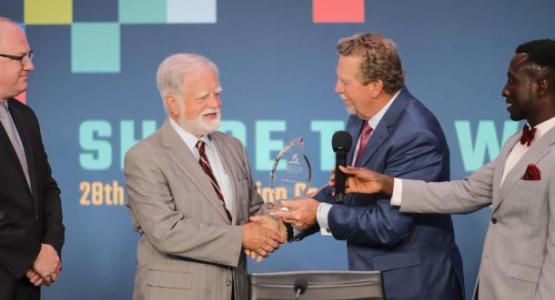
Walter Carson, Longtime Adventist Attorney, Honored for 15 Years of Service
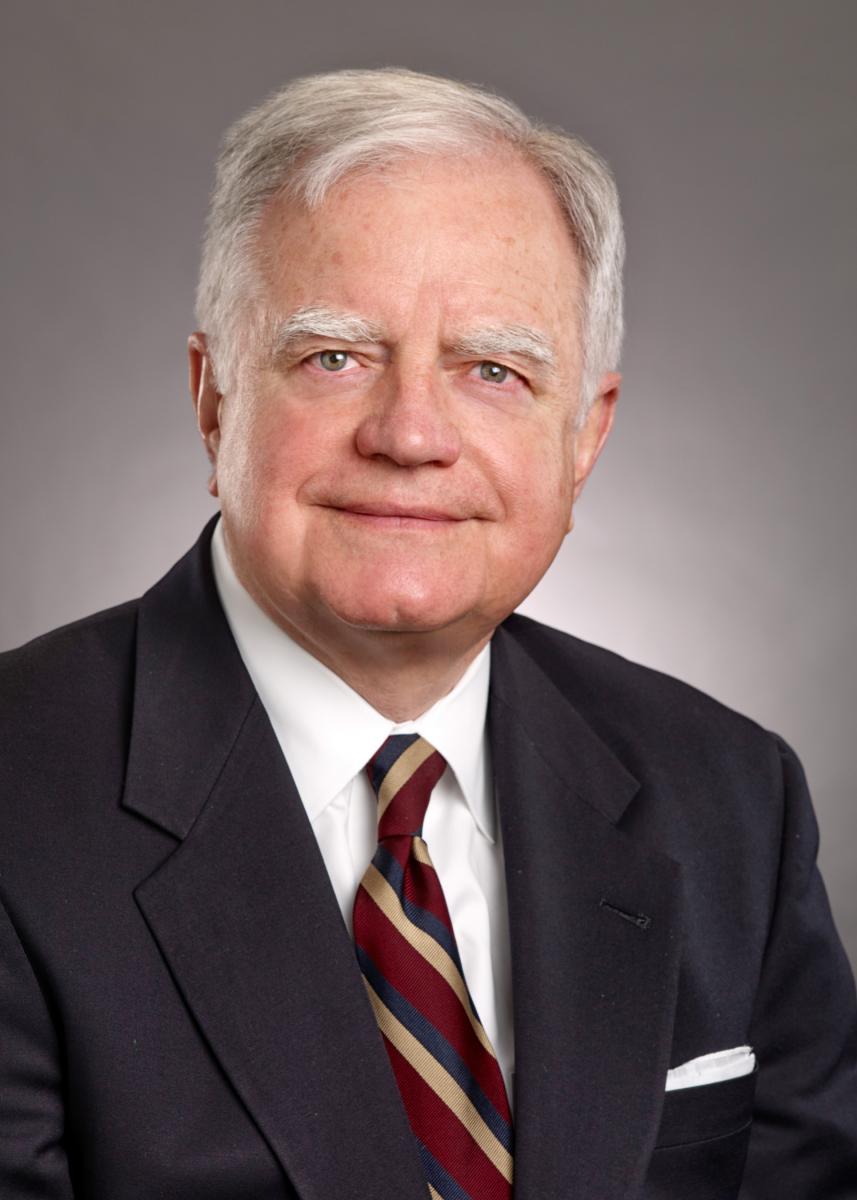 Story by V. Michelle Bernard
Story by V. Michelle Bernard
After 53 years practicing law, including 44 years representing the Seventh-day Adventist Church, Walter Carson, Columbia Union Conference vice president and General Counsel, plans to retire May 31. During his career, he represented various government agencies and worked in private practice, but found the greatest sense of purpose in working for the church.
“I’d like to think that to some extent, the time I’ve spent with the church may have been providential. Is it all chance? Is it all accidental? I suppose it could be; I’d like to think it’s not. God has a purpose in all of our lives,” says Carson.
“Why did I become an attorney? I suppose in part because of the influence and the leadership of Mr. Diehm,” he says. Ellis Diehm was a leader and attorney in the Cleveland church where Carson grew up.
That design and purpose slowly revealed itself as Carson grew up. Charles Shyab, a childhood and lifelong friend, recalls Carson distributing “I Like Ike” buttons on the playground during the presidential election of the early 1950s.
While studying at Ohio Conference’s Mount Vernon Academy, Carson met his future wife, Jackie, during College Days at Columbia Union College (now Washington Adventist University) in Takoma Park, Md. They later studied there together, Carson majoring in history with the possibility of going to graduate school and becoming a history professor. After graduating with a History degree, and marrying Jackie, Carson attended law school at Catholic University of America in Washington, D.C., and became an attorney.
Carson spent more than eight years working as the assistant law director for the city of Cleveland and an assistant attorney general for Ohio, where he was involved in trials and motions, appellate arguments, things that were “fun and enjoyable,” says Carson.
During his time at the Attorney General Office, he worked with several administrative agencies, including the racing commission. “It's kind of comical, because, as an Adventist, I probably had never been [at] a racetrack before, and now I'm handling disciplinary cases against the people who own horses and trainers,” he says.
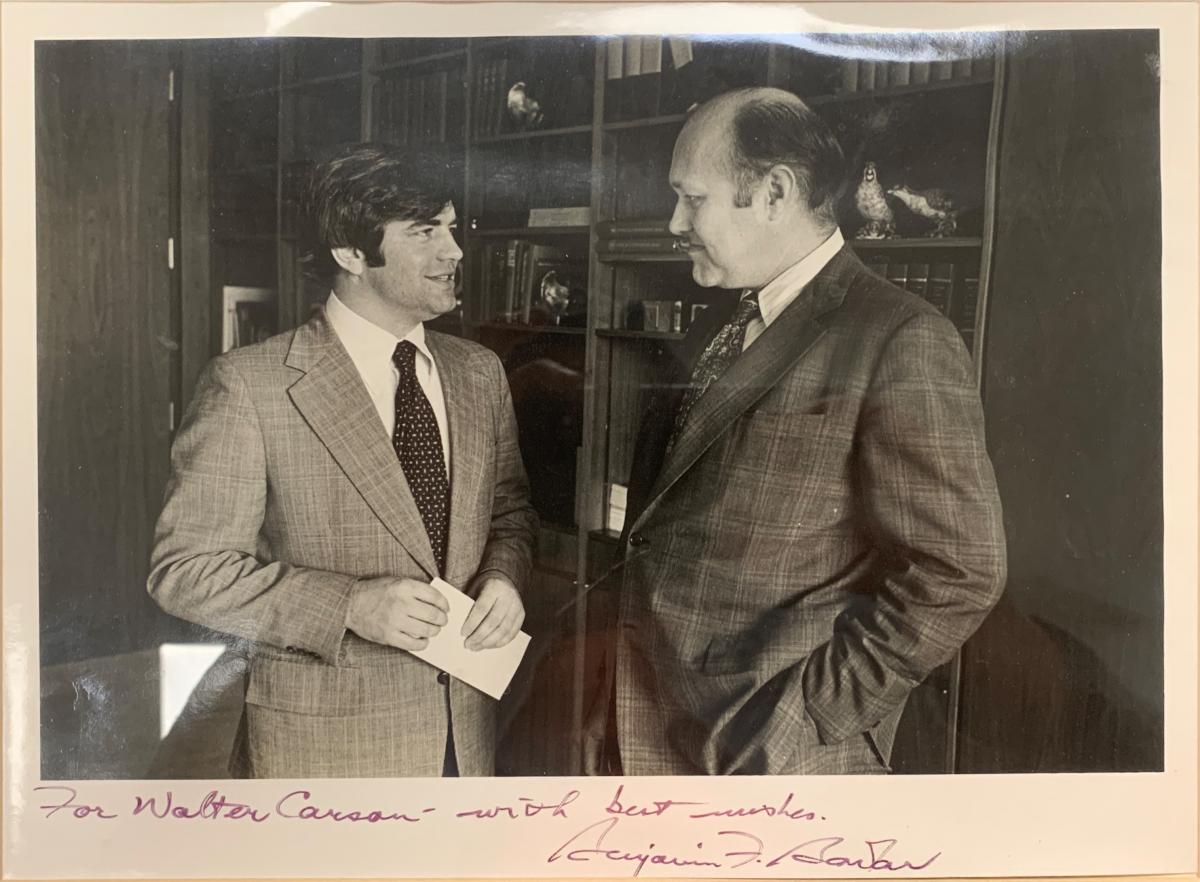 He also worked as a congressional liaison officer for the U.S. Postal Service. (Carson is pictured during this time with the Postmaster General)
He also worked as a congressional liaison officer for the U.S. Postal Service. (Carson is pictured during this time with the Postmaster General)
Carson said that those opportunities and experiences may have prepared him for the upcoming highlight of his career. “I don’t want to be so presumptuous that God necessarily said ‘Wally, I want you to do this,’ but … I believe that that might be an example of how providence was able to influence my life, so that when that opportunity presented itself, the courtroom was not a strange place for me.”
Carson also built many solid friendships during these times, introducing many to the only Seventh-day Adventist they knew. Carson noted that, at that time, many confused Adventists with Jehovah’s Witnesses, Christian Scientists or Latter-day Saints.
“If we stay at home and, you know, don't get out, don't mix, don't take part in the community, people won't have a chance to learn about who [Adventists] are,” says Carson. “There's value for the church and for the individual to be out there, engaged in community activities, making friends and establishing themselves professionally. Those kind of involvements I think benefit the church.”
Carson enjoyed his experience in the private sector, but found more fulfillment working for the Seventh-day Adventist Church. In the private sector, the focus is on wealth transfer, money and business, he shared. “Whereas, work for the church affects eternal matters, affects the lives of men and women for eternity, and has a lasting impact.”
Arguing Before the Highest Court in the Land
Carson left his job with the U.S. Postal Service in 1976 and became an associate general counsel at the Seventh-day Adventist Church World Headquarters in Silver Spring, Md. In this position, he litigated religious liberty cases, worked on intellectual property issues, provided parliamentarian services to church organizations and participated in the highlight of his career: successfully arguing before the Supreme Court of the United States of America.
In 1986, he and his team advocated on behalf of Paula Hobbie, a woman who was fired from her job in a jewelry store after becoming an Adventist and informing her employer she wouldn’t work during Sabbath hours. She filed for unemployment compensation, but was denied, and eventually appealed the case to the nation’s highest court. The ruling allowed her to receive unemployment and placed the burden of proof on the government in future cases—supporting the right to free exercise of religion.
The ‘Best Years’ of Adventist Work
In 2005, Carson moved to the Columbia Union and served for more than 15 years, providing general legal counsel to the church’s leaders in this region. He also oversaw Trust Services; Public Affairs and Religious Liberty; and assisted members seeking Sabbath accommodation in the workplace.
“My wife would tell you that the best years of the 44 years that I spent with the church were those years that I spent at the Columbia Union, in part because of the people that I had the good fortune to work with, and because the assignments were more local,” says Carson.
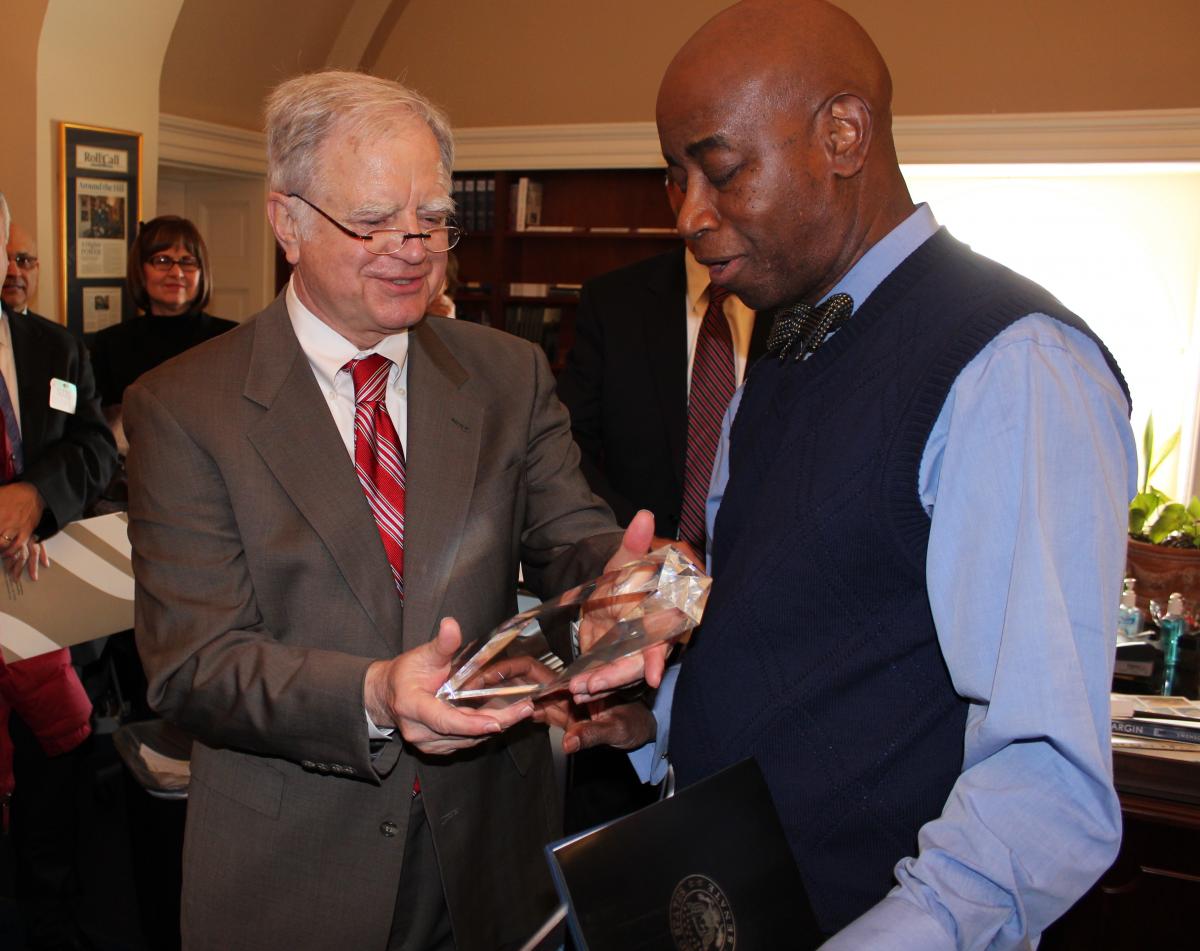 When asked about memories of Carson, known affectionally as “Wally,” union employees consistently share descriptors such as kind, polite, friendly, respectful and professional.
When asked about memories of Carson, known affectionally as “Wally,” union employees consistently share descriptors such as kind, polite, friendly, respectful and professional.
“I'm going to miss Wally's sage advice, his incredible insight on issues. He has a lot of experience, a lot of wisdom. He's been a tremendous, tremendous asset to give counsel and guide us through difficult situations , helping us to move the mission forward in the community,” says Dave Weigley, Columbia Union president.
“The one word that sums up Wally is kindness,” says Lisa Saveikis Burrow, who first worked with Carson at the General Conference in 1990 when he hired her for an internship that turned into an 18-year permanent job. Carson hired her again in 2019 as assistant to the general counsel at the union. “His nature is simply stated. [He’s] very intelligent, very quick. Somebody I admire a lot. … He’s been a great mentor, always happy to see the success of others, always thinking about others and very supportive.”
Rosemary Wilhelm, his administrative assistant for the last 12 years, echoes similar sentiments, noting the positive work environment he created, noting his concern for everyone he comes in contact with.
“No matter if we’re walking into an office luncheon or into a restaurant,” he knows people everywhere,” she says. “He speaks to everyone and makes sure everyone is having a good day. That is his priority.”
Carson is also known because of his many involvements in the community. He is the vice president of the Howard County Historical Society, a director of Community Action Council, president of the Concerned Citizens of Western Howard County and vice president of the Howard County Citizens Association.
Carson, who will retire this month, hopes to continue to be active in the community, play more golf, join a senior softball league, spend more time with his wife, children and three grandchildren, read more books and actively participate in the community life of Chesapeake Conference’s Frederick (Md.) church.
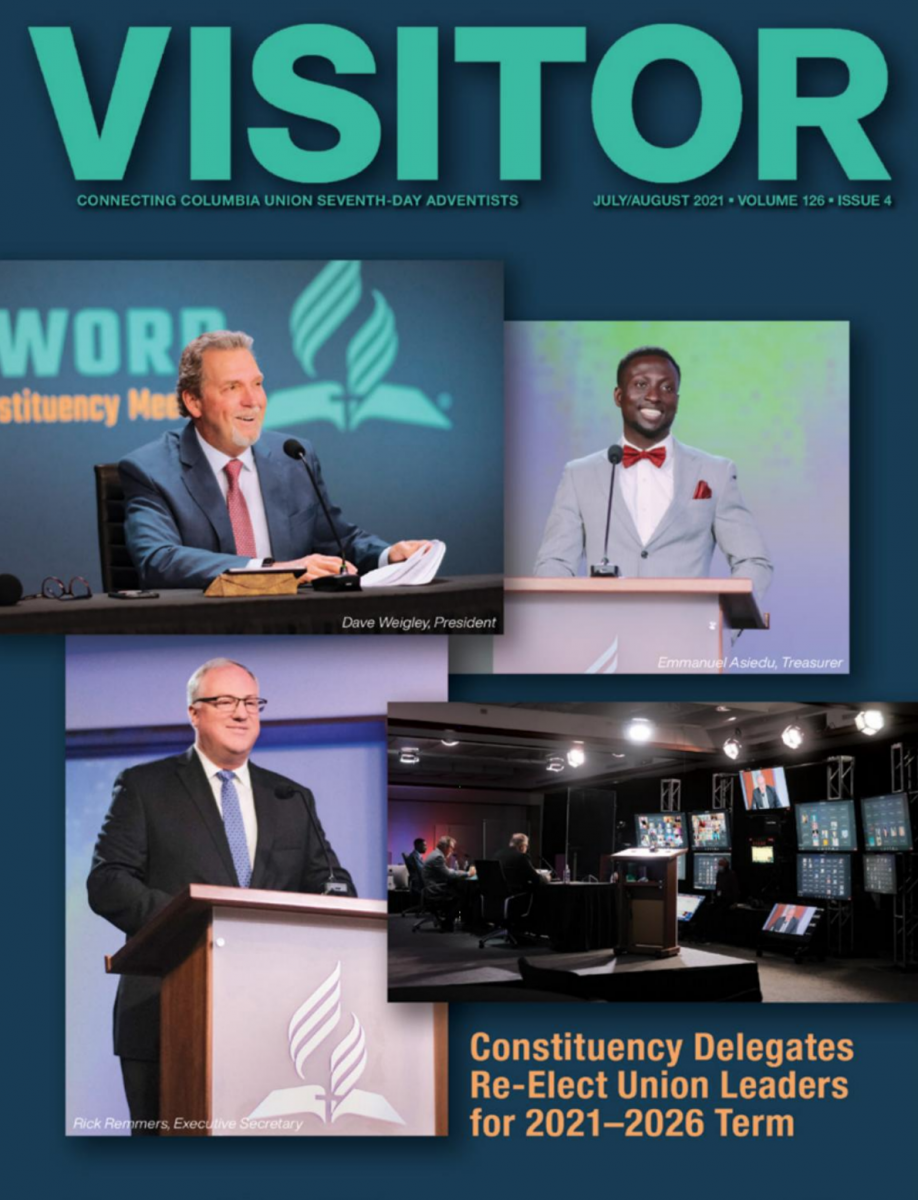 Read articles from the July/August 2021 Visitor:
Read articles from the July/August 2021 Visitor:
- Editorial: Share the Word
- Executive Committee Votes to Support the Allowance of Electronic Attendance at Upcoming General Conference Session
- Columbia Union Celebrates Five Years of Ministry, Hosts 28th Constituency Meeting Virtually
- Columbia Union Delegates Re-Elect President, Executive Secretary, Treasurer
- Columbia Union Vice Presidents Elected for New Five-Year Term
- Lea las noticias en español
- Lire les nouvelles en français
- Union Delegates Elect New Columbia Union Vice President and General Counsel
- Walter Carson, Longtime Adventist Attorney, Honored for 15 Years of Service
- WATCH all the videos from the Constituency Meeting

Add new comment